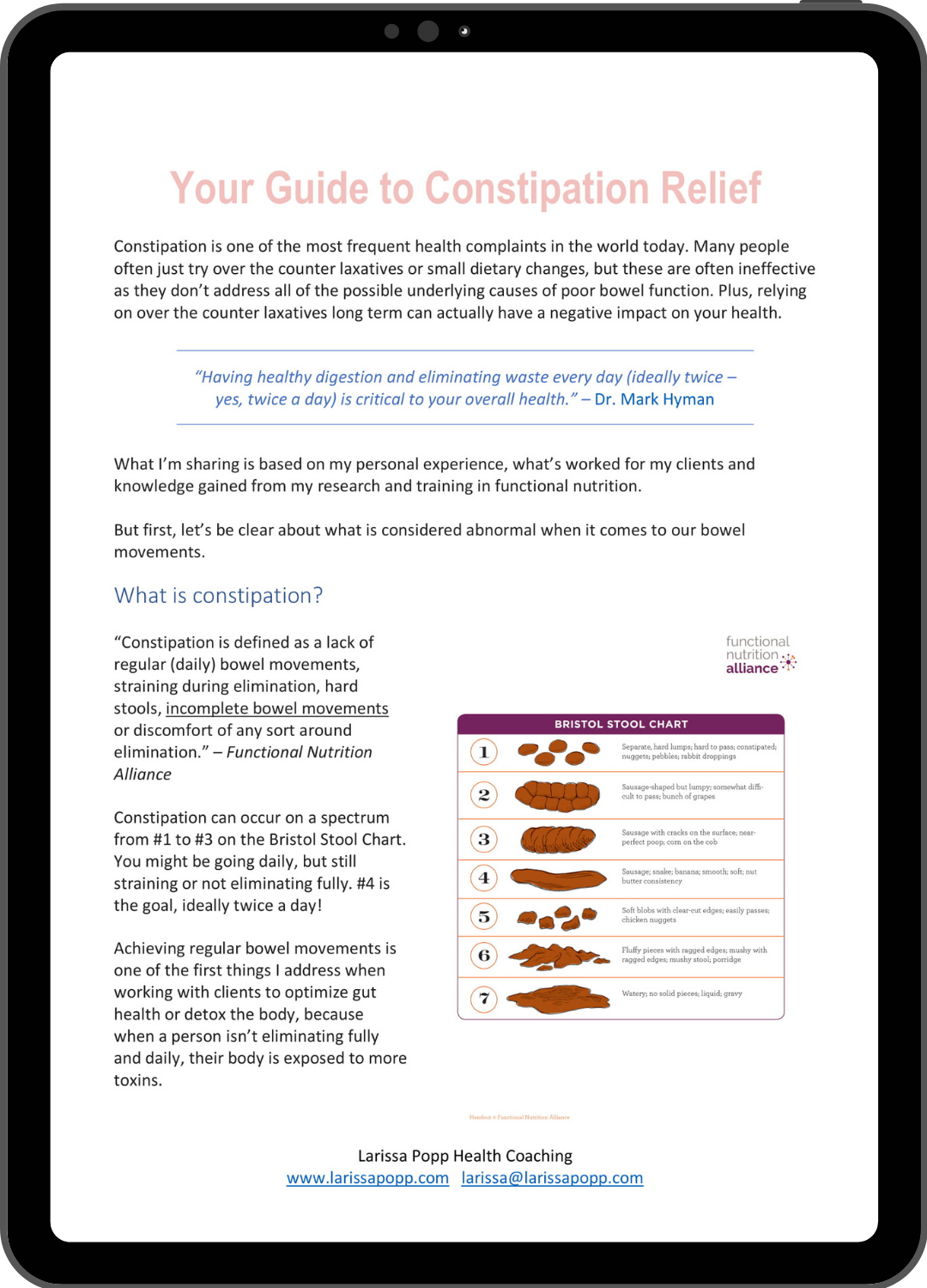I just finished watching the premier screening of “INTERCONNECTED: The Power to Heal from Within,” a 9-part documentary series that explores the role of our microbiome. And I want to share with you the top recommendations from the experts to cultivate a healthy microbiome, without spending a lot of money on expensive probiotic supplements.
“The microbiomeis the next frontier in medicine. Understanding it and optimizing it is goingto be critical to solving so many of our healthcare issues.” – Mark Hyman, MD,Cleveland Clinic Center for Functional Medicine (1)
“Protecting yourmicrobiome – and restoring its balance if it is disrupted – is one of the mostimportant things you can do to sustain health.” – Frank Lipman, MD (2)
First, what is the microbiome?
The microbiome consists of trillions of microorganisms (aka microbiota), including thousands of different species, mostly found in the small and large intestines. These include bacteria, fungi, parasites, and viruses. In a healthy person, these ‘bugs’ coexist peacefully. The microbiome is now even being labeled a supporting organ because it plays so many key roles in our body. (3)
Why is a healthy microbiome so important?
“The microbiome is the next frontier in medicine…You can transplant fecal matter from a thin person to a fat person and reserve their diabetes. You can take fecal matter from a normal kid and put it into an autistic kid and their behavior changes.” – Dr. Mark Hyman (1)
“The microbiome has the power to impact almost every area of your health, including your immunity, stress response, sleep, mood and behavior, metabolism, weight, and so on.” – Dr. Frank Lipman (2)
Friendly bacteria help:
- Produce essential vitamins and nutrients,
- Digest our food,
- Orchestrate our immune system,
- Control our metabolism,
- Sustain the gastrointestinal tract and promote healthy digestion,
- Regulate our appetite,
- Impact our mood,
- Make natural antibiotics,
- And more. (4)
“It’s no wonder with everything that our gut bacteria do, that they’re connected to chronic disease. In fact, there’s not one chronic disease that you can think of [e.g. diabetes, heart disease, cancer, fibromyalgia, rheumatoid arthritis, obesity, autoimmune, alzheimer’s, etc.] that has not been associated with a disruption of our microbiome at some level.” – Dr. Helen Messier (4)
We’ve got more bacterial cells than human cells in our body. And our microbial genes outnumber our human genes by more than 150:1. (4)
70% of our immune system resides in our gut.
Over 90% of your body’s serotonin – aka, your “happy” neurotransmitter – is made by your gut microbiome. (5) This is why a change in the microbiome can significantly affect your mood and behavior, your cognitive performance, your mental health, and your pain tolerance. (6,7)
of our nervous system also resides in our gut. Therefore, our gut is a complex source of health, immunity, and curing-ability.
In the documentary, Interconnected, Dr. Mark Hyman cited one research study showed that Polish women have very low rates of breast cancer, and they eat 30 pounds of sauerkraut in a year. And when the same women move to American they have the same rates of breast cancer as everyone else because they don’t eat their sauerkraut. (1)
Unfortunately, few people reach adulthood with their microbiome in great shape, due to things like drugs and antibiotics, junk food, GMOs, and conventionally or factory-farmed meats. (2)
What’s the best way to cultivate a healthy microbiome?
First, you want to avoid anti-biotics use as much as possible, unless absolutely needed. If a doctor prescribes them, ask: is it really necessary? The CDC estimates that a third of all antibiotic use is unnecessary. And based on the statistics in Sweden, microbiome expert Dr. Martin Blaser (Director of the Human Microbiome Program, NYU) thinks it’s even two thirds.
If you do need to use antibiotics, be sure to take lots of probiotics and prebiotics afterwards (following the dietary advice below, because simply taking a probiotic pill afterwards won’t cut it).
“You can’t hack the microbiome. Simply taking a probiotic after taking an antibiotic won’t reverse the damage easily. It’s like you just drained all the water out of the tub and then put back in one cup of water to start of fill it back up.” – Robynne Chutkan, MD (Author, The Microbiome Solution)
Second, you want to think of your microbiome as an inner garden that needs tending to in order to flourish. You just need to feed it the right stuff. Which is probiotics (more of the “good guys”), and prebiotics (fiber). And diversity is also important for both probiotic and prebiotic consumption.
And you want to stop feeding your microbiome the wrong stuff, i.e. refined sugars, flours, and oils. And processed foods. There are a lot of antibacterial substances in processed foods that are having a negative effect on the microbiome.
3 Tips to Nurture Your Microbiome Daily
To cultivate a healthy microbiome through your diet, do the following things daily:
1. Eat probiotic-rich foods (i.e. fermented food), every single day. And focus on variety.
Fermented foods are the whole food version of the probiotics you may be familiar with (that have become a popular supplement). Well, making homemade sauerkraut is WAY cheaper than stocking up on high quality probiotics, and eating a variety of fermented foods is also more effective
Have a forkful, or two, of fermented vegetables daily. And rotate each day between different varieties, This can include fermented beets, sauerkraut, sauerkraut with carrots, kimchi, etc.When vegetables ferment they produce hundreds and hundreds of different families of bacteria that are good for you. Every vegetable when fermented produces different families of bacteria.It’s the diversity of the microbiome that’s going to make the difference so you want a diversity of inoculation from fermented vegetables.
Kombucha, kefir, and organic whole yogurt are also good sources of probiotics. But don’t rely only on these. Be sure to also consume fermented veggies.
You want to have different types of fermented vegetables inyour refrigerator and alternate every day which one you consume so that you’reinoculating your microbiome with different strains of bacteria. According toTom O’Bryan, inoculating with the goodguys every single day is the primary thing that you can do to ensure a long andhealthy microbiome. It’s the diversity of the microbiome that makes you healthier,and for example, more able to protect the lining of your gut and preventautoimmune diseases which have become far too common these days. Each
2. Consume lots of, and a variety of, fruits and vegetables, and other plant foods.
Prebiotics refers to specific types of dietary fibers that feed the friendly bacteria in your gut. These include inulin, pectin, and resistant starch.
While there are prebiotic supplements available, you can easily get enough of these fibers through your diet – the best source being fruits and vegetables (with their skins). The highest amounts are found in garlic, onions, leeks, asparagus, Jerusalem artichokes, dandelion greens, bananas, and seaweed (1). However, in general, vegetables, fruits, whole grains and beans are all good sources of prebiotic fiber. So just focus on eating a plant-rich diet (i.e. eat more veggies!) and also eat a variety of different plant foods (i.e. the hugest variety of fruits, vegetables and other plants that you can). And buy locally as much as possible.
Gut expert Tom O’Bryan recommends: “when you go shopping, always buy a few different root vegetables: rutabaga, parsnips, sweet potatoes, carrots, etc. – and have at least one root vegetable each day + have at least 2 other prebiotic foods so you’re feeding the good bacteria.”
Here’s a list of 19 probiotic-rich foods, which includes some common foods such as oats, flaxseeds, and apples, in addition to those mentioned above.
Prebiotics fiber can also come from cooking and cooling rice or potatoes to form resistant starch. And once you’ve cooled the rice or potatoes and the resistant starch has formed, you can re-heat them and still get the benefit of the resistant starch.
3. Have a few spoons of apple sauce daily (with the skins included)
However, one caveat is that if you currently have severe gut/digestive issues, then you may want to try avoiding high FODMAP foods until you heal your gut.
One suggestion from Tom O’Bryan is to make stewed apples (aka apple sauce) and have a couple tablespoons twice a day.
Stewed Apple Recipe:
- Wash, core and slice your apples (leaving the skin on), organic if possible (if not organic, wash extra well because conventional apples contain a lot of pesticides)
- Put the apples in a pot and fill with water to 1/3the height of the apples
- Add some cinnamon (and a little nutmeg if you like)
- Add some raisins if you want (I’m not a big fan of raisins so I leave them out)
- Turn the heat on to high and boil until you see a shine on the skin of the apples (which tells you the pectin has been released and they are done) – about 5 minutes at a boil for a pot with 4 slices apples.
Why stewed apples?
The pectin in the skin of apples (a type of fiber), specifically increases a substance in our gut called intestinal alkaline phosphatase (IAP). IAP protects your body – it prevents toxic bacteria (Lipopolysaccharides, LPS) from getting into the bloodstream and helps to escort that toxic bacteria out of your body. Otherwise, LPS can cause inflammation and damaging effects on the brain and body.
IAP also stimulates the genes to heal intestinal permeability and stimulates the good bacteria to colonize and rebuild. This is why an apple a day really can keep the doctor away.
Bottom Line:
Simply, Eat. More. Vegetables. Eat different colored vegetables. And eat both fresh and fermented vegetables.
Do these 3 things daily, or as often as possible, to cultivate a healthier microbiome and optimize your health:
- Eat a forkful of fermented veggies every day. Stock up on a few different varieties (or make your own) to maximize the diversity of probiotics you’ll be consuming.
- Eat lots of, and a variety of, fruits and vegetables to get sufficient dietary fiber (the prebiotics) to feed your health gut bacteria.
- Eat a few spoonfuls of stewed apples/apple sauce, with the apple skins, each day, to help flush toxic gut bacteria out of your body.
And remember… Learning information is only transformative if you apply it in your life.
References:
- Interview with Dr. Mark Hyman. Interconnected: The Power to Heal from Within. https://www.interconnectedseries.com/
- Frank Lipman, MD. How to Be Well: The 6 Keys to a Happy and Healthy Life. 2018.
- https://www.hsph.harvard.edu/nutritionsource/microbiome/#what-is-microbiome
- The Power of Precision Wellness – Dr. Helen Messier, CMO of Viome, https://www.youtube.com/watch?v=NpoRPvP_Rd4&t=125s&refcode=thedr&
- https://www.ncbi.nlm.nih.gov/pmc/articles/PMC4393509/
- https://www.ncbi.nlm.nih.gov/pubmed/24997043
- https://www.ncbi.nlm.nih.gov/pmc/articles/PMC4886662/


